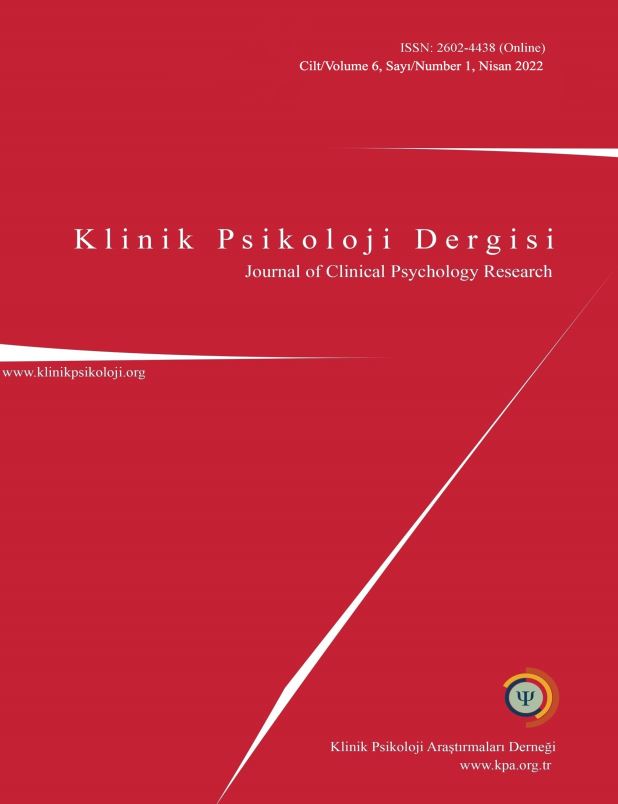Erken dönem uyum bozucu şemaların ve işlevsel olmayan şema başetme modlarının kişilerarası baskınlık ve boyuneğicilik ile ilişkisi: Çiftlerde algılanan benzerlik: Romantik İlişkilerde Baskınlık ve Boyuneğicilik
The association of early maladaptive schemas and dysfunctional schema coping modes with interpersonal dominance and submissiveness: Perceived similarity in couples: Dominance and Submissiveness in Romantic Relationships
Author(s): Büşra Fatma Gültekin, Miray AkyunusSubject(s): Social Sciences, Psychology, Social psychology and group interaction, Clinical psychology
Published by: Klinik Psikoloji Araştırmaları Derneği
Keywords: early maladaptive schemas; interpersonal problems; dysfunctional schema coping modes; interpersonal complementarity; dominance; submissiveness;
Summary/Abstract: Schema Therapy Model and Interpersonal Theory of Personality have consistent developmental explanations of personality and interpersonal relationship patterns. According to the Schema Model, dysfunctional schema coping modes, as well as early maladaptive schemas, can affect relational patterns in close relationships. Moreover, the complementarity principle of the Interpersonal Circumplex Model suggests that behaviors in interpersonal relationships show reciprocity in the dominance dimension. In this study, early maladaptive schemas and dysfunctional schema coping modes in relation to dominance and submissiveness were examined in romantic relationship context. The sample of the study includes 731 (408 females and 317 males) participants aged between 18-61. The data of the study was collected via Demographic Information Form, Inventory of Interpersonal Problems-Circumplex Scales-Short Form self-report and observer version, Young Schema Questionnaire Short Form-3, and Schema Mode Inventory. Hierarchical multiple regression analyses were conducted to determine the association of dominance and submissiveness to perceived partner-dominance and perceived partner-submissiveness, while the effect of schemas and schema modes are controlled for. Depending on the results of the hierarchical regression analyses, two independent serial mediation models were proposed and tested. The results showed the mediating role of the coping schema modes (surrender and overcompensation) and one’s interpersonal problems (submissiveness and dominance), respectively, in the relationship between the disconnection schema and perceived interpersonal problems in the partner (perceived partner submissiveness and dominance). Participants perceived their partners similar to themselves in interpersonal problems. The findings were discussed within the scope of the literature and their clinical implications were evaluated.
Journal: Klinik Psikoloji Dergisi
- Issue Year: 6/2022
- Issue No: 1
- Page Range: 108-122
- Page Count: 15
- Language: Turkish, English

